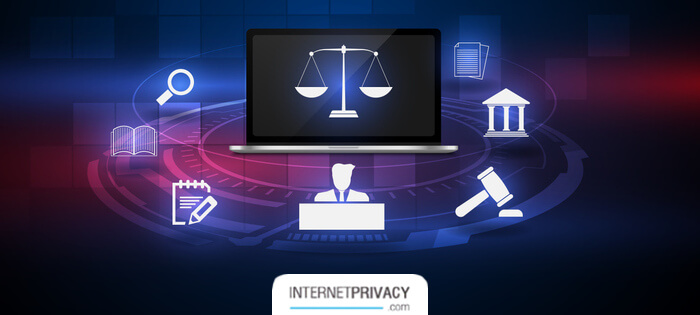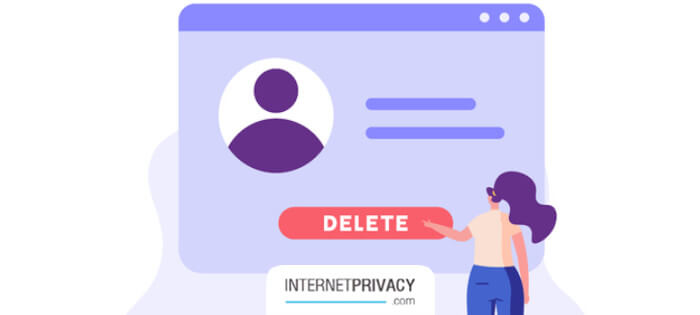Internet Privacy Lawyer: When You Need One

Privacy looks much different in the modern digital era than it once did. And because of these modern-day complexities, many seek the help of an Internet privacy lawyer.
Privacy lawyers also offer services to victims of cybercrime involving online privacy.
What An Internet Privacy Lawyer Does
Internet privacy lawyers primarily handle personal information and identity theft cases. These issues include:
- Identity theft
- Release of personal information (doxing)
- Protecting client/customer/user data
- Intellectual property litigation and disputes
- Drafting privacy laws
- Responding to security incidents and breaches
- Online harassment
- Sharing of adult content by an ex (revenge porn)
- Online reputation management
As noted, lawyers specializing in Internet privacy may help with a broad range of subjects.
For example, they may help businesses seeking help with client data storage issues. They may also help companies struggling with security breaches or facing legal action stemming from a data breach.
Additionally, such lawyers may help individuals victimized by identity theft or other invasions of online privacy.
Internet privacy attorneys may even help individuals or businesses assess IT system security. And in some cases, they may help develop plans to improve or continue information security.
This process often involves employee education and training to ensure information security.
How Online Privacy Lawyers Differ
Lawyers who focus on Internet privacy cases are intimately familiar with laws pertaining to those issues. These include laws about identity theft and revenge porn.
In contrast, other attorneys may focus on family, criminal, or other law cases. Not only does online crime evolve at breakneck speed, but the laws themselves are ever-changing. Laws may also differ if minors are involved, either as perpetrators or victims of cybercrime.
Further, Internet privacy lawyers may have to contend with cases crossing state or even country borders. This is because Internet crimes are committed through the wires and not in person.
Thus, these lawyers have to know local laws and research how the global nature of cybercrime impacts cases. In some cases, cybercriminals may need to be extradited to appear in person for their trials.
Unfortunately, most laws regarding Internet crime are still several steps behind the criminals. So, lawyers who deal with cybercrime may also pressure law enforcement to investigate these cases.
A lawyer skilled in Internet privacy may also identify those responsible for identity theft or other Internet privacy crimes.
Because of smartphones and other mobile devices, your online data may also include GPS coordinates. Thus, Internet privacy can involve your physical location, which may jeopardize the safety of yourself and your family.
Laws Pertaining to Internet Privacy
Aside from the federal laws below, several states have introduced legislation to protect residents’ privacy.
Internet privacy laws may differ in other countries.
- Children’s Online Privacy Protection Rule (COPPA): Imposes requirements for sites and apps that allow users under 13 years old.
- The Federal Trade Commission Act (FTC): Regulates commercial practices that may be unfair or deceptive, including compliance with privacy policies and protecting users’ personal information.
- Electronic Communications Privacy Act (ECPA): Prevents unauthorized access, use or sharing of electronic, oral, and wired communications.
- Computer Fraud & Abuse Act (CFAA): Bars the use of computers to access certain information, commit fraud, transmit harmful items, or traffic computer passwords.
- Controlling the Assault of Non-Solicited Pornography and Marketing Act (CAN-SPAM Act): Prohibits misleading header information and subject lines in email messages; governs unsolicited email correspondence.
- Financial Services Modernization Act (GLBA): Regulates the collection, use, and disclosure of users’ personal information by financial institutions.
- Fair and Accurate Credit Transactions Act (FACTA): Requites creditors and financial institutions to safeguard users’ identities with written identify theft programs.
Discover how social media privacy laws impact you.
Legal Options Available to Victims of Internet Privacy Crimes
If you have been the victim of identity theft, or had your private information posted online, you may have legal options. An Internet privacy lawyer can help you with a case against the criminal. This includes requesting punishments such as jail time, fees, or compensation.
An attorney may also be able to help you obtain legal protection, such as a no-contact order.
Financial privacy can fall within the realm of Internet privacy. For example, your credit score and reputation may suffer if someone steals your identity, opens new accounts, gains access to existing accounts, or makes purchases with your credit. Online privacy lawyers can help you contact credit bureaus or creditors to negotiate debt incurred by an identity thief.
An Internet privacy lawyer or firm may represent a large group of people who were involved in a data breach. This is true especially if they must take on a corporation that failed to protect their information or alert customers of a data breach.
In some cases, the defendant may even be a company or organization that has violated users’ right to privacy online. These cases generally involve illegally monitoring online activities such as sent or received messages or websites visited.
Although consumers agree to let companies see or share some information, companies often overreach.
Finally, online privacy lawyers may be able to remove your private information or content from the Internet to prevent it from spreading.
How Internet Privacy Lawyers Help After a Data Breach
Companies that have suffered a privacy breach may find themselves facing charges as cybercriminals. Additionally, these businesses may face lawsuits from clients whose data was exposed by the breach.
An Internet privacy lawyer can help businesses of all sizes navigate the complex legal system. In addition, careful handling of these cases can mitigate further damage to a company’s reputation after a data breach.
Of course, prevention is more effective than remediation. This is why Internet privacy lawyers can also serve businesses before a breach. Lawyers can ensure your business complies with local and international laws pertaining to online privacy and security.
Famous Internet Privacy Cases
There have been several high-profile cases surrounding internet privacy. Some of these have included awarding victims billions of dollars.
- Anthem failed to protect the medical data of those it insured.
- Facebook scanned user messages.
- Google Street View intercepted private communications.
- Sony’s PlayStation network experienced a breach of millions of users’ data.
- AT&T and the NSA surveilled AT&T customer communications.
- Snapchat’s facial scanning violated the Illinois Biometric Information Privacy Act.
- The University of California allowed unauthorized access to computers containing medical information.
- Disney tracked children through 42 mobile apps and games.
Can I Protect My Data Online?
Consumers can take several steps to protect their data online. It’s important to do so because anyone can become a victim of online privacy crime. This is particularly true because cybercriminals often target businesses to gain access to large volumes of consumer information.
Unfortunately, there is a thriving market for such information on the dark Web. This also includes kits that allow would-be information thieves to become successful hackers. And, data brokers may keep victims’ information indefinitely.
First, you can give away your email address and phone number only sparingly. On top of that, you can use temporary or alternative email addresses when you sign up for new services. To protect your phone number, consider registering an alternative number through Google Voice, which is free and can also be used for text messaging.
Your phone provider may issue an additional number to use with a secondary SIM card if your phone is compatible. To prevent your phone number from becoming stolen and ported to a criminal’s phone, lock your SIM card.
It’s also important to choose strong, unique passwords for every account. If someone gains access to an email address that you use for multiple accounts, they may be able to access those other accounts if you use the same password.
Y
You can also search on popular data broker sites to see if your personal information is already in their databases and submit requests to remove your information – common sites include Nuwber, BeenVerified, MyLife, Locate People Org, Arrests Org, etc.
Further, multifactor or two-factor identification protects accounts and the private information they contain, even if hackers gain access to your username and password.
Remember that scammers can easily spoof your email address or phone number without having to gain access to your account.
Thus, it’s important that everyone who uses a computer or mobile device carefully screens calls and emails, including not downloading any attachments or clicking links. This is true even if those messages appear to come from people who are known to them.
Contact Us to Learn How to Protect Yourself Online
Discover how our Internet privacy and monitoring services can protect data belonging to you, your staff, or your clients today.
Find out how Internet privacy lawyers can help protect your privacy online or repair damage due to data and identity theft.
Want to learn more? Contact our Online Privacy Team today for a free consultation.





